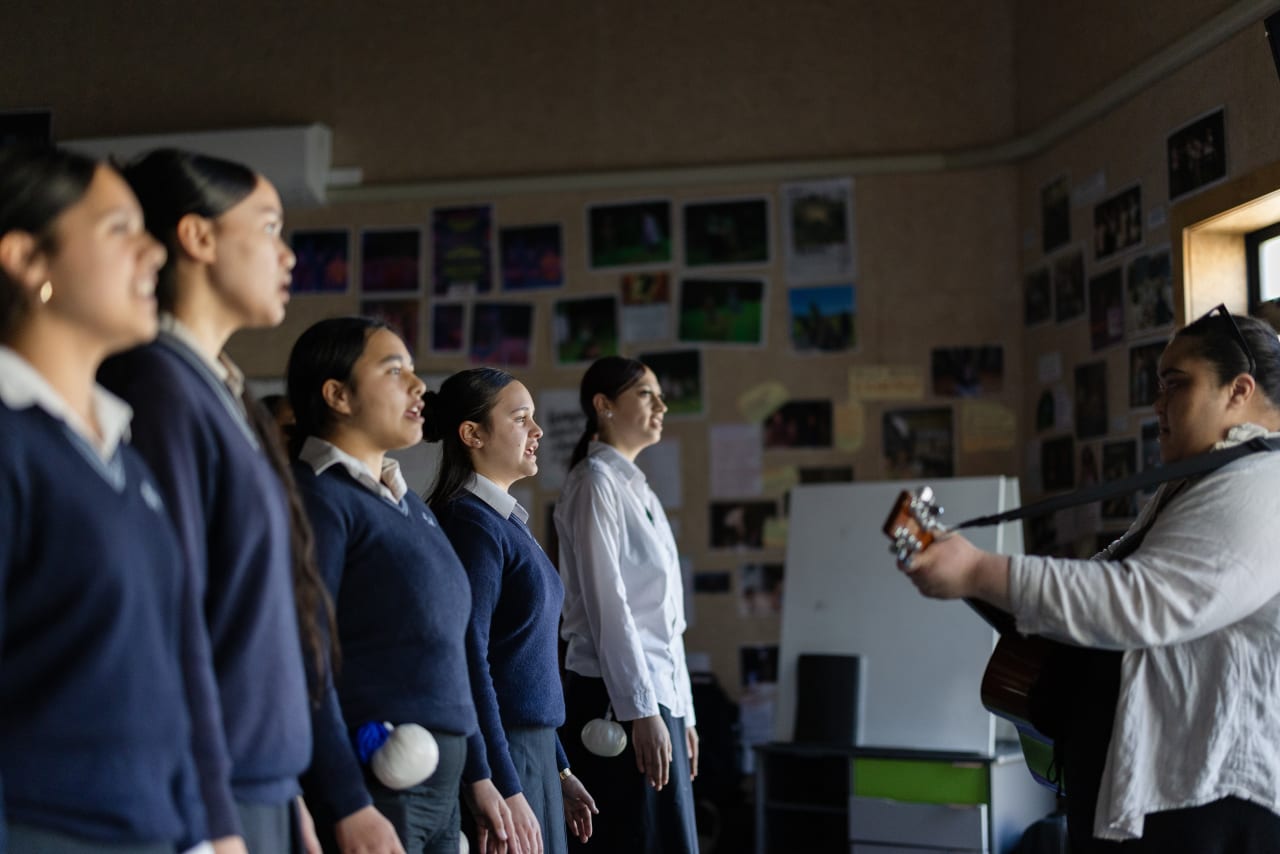Language requirements to teach in NZ
To teach in Aotearoa New Zealand, you need to show you’re confident using English or te reo Māori — the main languages of our national curriculum. Find out more about our language competency requirements.
On this page
What you need to know
To successfully teach to a high standard in NZ, we require teachers to be competent in English or te reo Māori. All applicants studying to be a teacher or applying for registration and certification must meet the language competency requirements.
What you need to provide
You must include proof of your language skills with your application.
This could be:
- official test results
- a reference letter
- a written testimonial.
The Teaching Council uses evidence to check your language ability. There are many ways to show you meet the requirement.
You can read more in the Council’s Language competency for teaching in Aotearoa New Zealand policy.
English language competency requirements
To demonstrate English language competency, please provide evidence of one of the following:
- The New Zealand University Entrance literacy credits at either NCEA level 2 or 3
- New Zealand University Entrance
- New Zealand tertiary entrance qualification gained on completing senior secondary school prior to the introduction of current University Entrance
- Full International Baccalaureate Diploma (taught in English, min. 24 points).
- Cambridge International Exams: Min. 120 UCAS Tariff points + literacy requirements.
- Schooling in English: All primary and at least 3 years of secondary education in English, completed in NZ, Australia, Canada, Ireland, UK, USA, or South Africa*.
- Extended Education in English: At least 6 years of secondary/tertiary education, including 2 years full-time tertiary study in English in one of the eligible countries*.
- NZQCF Qualification: Level 7+ qualification requiring 2+ years full-time study, taught in English in an eligible country*.
- Recognised Teaching Qualifications: Cambridge CELTA or Trinity CertTESOL.
- Pacific Peoples Pathway: Completion of the English Language Competency Pathway (ELCP) for Tagata o le Moana.
- South African Qualifications: Must include a Matriculation or Senior Certificate with a minimum pass in English (Higher Grade D or Standard Level 5).
*Eligible countries: NZ, Australia, Canada, Ireland, UK, USA, South Africa.
To see all accepted tests and required scores, see the Language Competency Policy.
Demonstrate te reo Māori competency
One of the following types of evidence must be provided to demonstrate te reo Māori competency:
- Achieved Whakamātauria Tō Reo Māori Level 3 (National Māori Language Proficiency Examinations).
- All primary schooling and at least three years secondary schooling in te reo Māori.
- Five years of secondary schooling in te reo Māori.

English Language Competency Pathway (ELCP) for Tagata o le Moana | Pacific Peoples
Tālofa, fakaalofa lahi atu, kia orana, talofa lava, mālō e lelei, ni sa bula vinaka, noa'ia, mālo ni, mauri, tēnā koutou katoa and warm greetings to you all!
The Teaching Council is committed to supporting Pacific Peoples and honouring our responsibilities as Tangata Tiriti and Tagata o le Moana. We worked closely with Pacific teachers, leaders, and communities to update our language competency policy.
The updated policy now includes a new option: the English Language Competency Pathway (ELCP). This pathway allows applicants to use their schooling or tertiary study in the Pacific region as evidence of English language competency.
This change helps reduce barriers for Pacific applicants and supports the growth of multilingual and immersion teaching pathways across the education system.

Exceptional cases for English language
If you don't meet the standard language competency options but you have other strong evidence of your english language, the Teaching Council may consider your case. We consider exceptional cases to ensure we accommodate high-quality teachers with the right level of competency.
If you have not completed any schooling and studies in any of the countries listed in the policy (New Zealand, Australia, United Kingdom, the Republic of Ireland, Canada, USA or South Africa) and you have not completed an approved test/course, then it is likely that you will not meet the requirements for an exemption.
ITE providers can make exemption decisions for English Language Competency for applicants to their ITE programmes.
To support this transition, the Teaching Council has produced an English language competency (ELC) exemption guide for ITE providers. This document assists ITE providers to understand how the language exemption process works and how to make high-quality exemption judgements.To illustrate the intent and detail of this exemption guide, the Teaching Council hosted two webinars in October. The recording from one of these webinars can be found on Youtube.
Read more about the language competency policy.
FAQs
The policy, introduced in 2019, requires evidence of competency in English or te reo Māori—the languages of our national curricula—rather than focusing on whether they are additional languages. It supports teaching in English and Māori medium settings, as outlined in the Education and Training Act 2020.
In 2022, the Council’s purpose was updated to include support for other language mediums, such as Pacific languages.
You can meet the language competency requirements using results from more than one test where they show that you achieve or exceed the specified outcome in each of the four competencies (listening, reading, writing and speaking). This means you can:
- use multiple test results from the same test provider; or
- use test scores from more than one test provider
This doesn’t require an exemption request. However, it does require documentation from all approved tests (completed within the last two years).
For entry into an ITE programme, seek confirmation from your ITE provider.
If your English language competency is based on an online examination rather than a formal qualification, it can only be accepted if the exam provider has proven to the Teaching Council that the test is secure and reliable.
Currently accepted online exams include:
- TOEFL Internet-based Test (iBT)
- ISLPR Online Test
If you’re applying for Initial Teacher Education (ITE) or teacher registration and can’t provide one of the listed evidence options, the Council may consider other proof of high English language competency on a case-by-case basis.
You don’t need to share your nationality, ethnicity, or first language, as the process is based on evidence. For ITE applicants, exemption requests must be submitted by the ITE provider.
For Initial Teacher Education (ITE):
ITE providers can make exemption decisions for English Language Competency for applicants to their ITE programmes.
To support this transition, the Teaching Council has produced an English language competency (ELC) exemption guide for ITE providers.
For Teacher Registration:
Council registration officers assess your application and may request an exemption if your evidence merits consideration. You don’t need to contact the Council directly. If your language test scores fall slightly below the required level, the Language Competency Exemption Panel may review your case, considering test results, testimonials, work experience, recent study, and education history in Pacific countries.
Note: These exemption options also apply to applications for a Limited Authority to Teach.

Your portal: My Rawa
My Rawa is your go-to space for getting started as a teacher in Aotearoa. With tailored guidance and practical tools, it helps you take confident steps in your teaching career.
